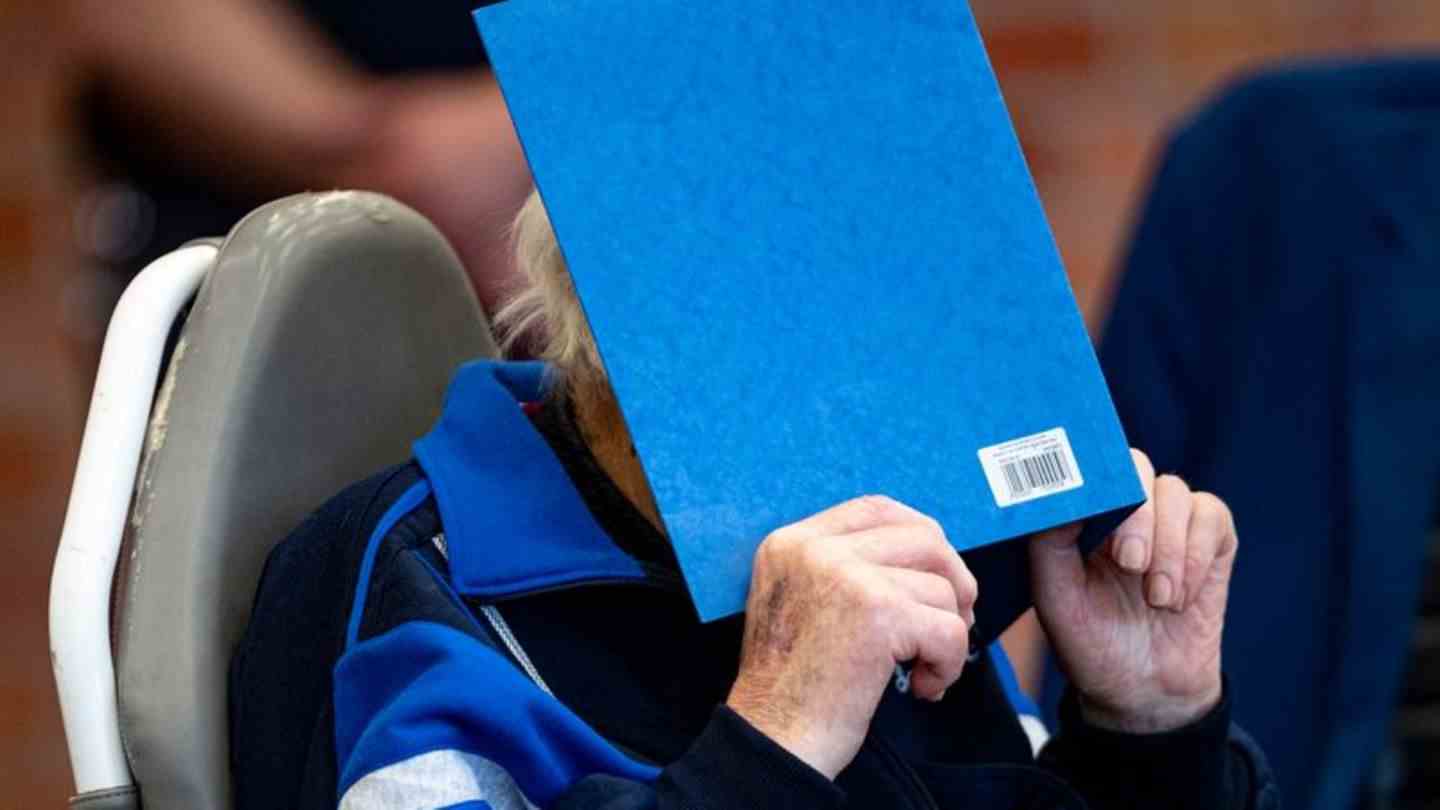National Socialism
The process of suspected SS guard is in the final phase
According to the indictment, the now 101-year-old former concentration camp guard is said to have knowingly and willingly assisted in the murder of camp inmates in 3,518 cases between 1942 and 1945 in Sachsenhausen concentration camp. Photo: Fabian Sommer/dpa
© dpa-infocom GmbH
The trial of a 101-year-old suspected concentration camp guard continues. At first it looked as if he could not come for health reasons, now he commented on his state of health.
According to previous plans, the trial of a suspected former SS guard in the Sachsenhausen concentration camp could end on June 2nd.
The prosecutor will probably give his closing speech on Tuesday (May 17), said the presiding judge Udo Lechtermann on Monday in Brandenburg/Havel. The trial before the Neuruppin district court began on October 7 last year. For organizational reasons, it takes place in a sports hall.
After a break of several weeks due to Corona and an ulcer on the foot of the 101-year-old defendant, the hearing continued on Monday – and a forensic doctor made it clear that the man was as limited as before. According to his corona doctor, the accused was “impressively stable” for his old age; especially when it comes to lung and heart function, said Jürgen Becker from the State Institute for Forensic Medicine.
Charged with being an accessory to a thousand murders
The 101-year-old is accused of having aided and abetted the murder of at least 3,518 prisoners as a guard at the Sachsenhausen concentration camp in Brandenburg from 1942 to 1945. The public prosecutor’s office relies on documents relating to an SS guard with the man’s name, date of birth and place of birth. So far, the accused has denied that he worked in the concentration camp at all. According to his own statements, he worked as a farmhand near Pasewalk (Mecklenburg-West Pomerania) at the time in question. His mother and father had stated in letters to German authorities that their son was serving with the SS in Oranienburg.
The accused arrived at the court in Brandenburg/Havel about an hour late on Monday. According to his own statements, he initially did not know that he should go to the procedure on Monday, and according to the forensic pathologist, his nursing service was not there yet. Becker then checked how he was doing. “Have a nice day everyone,” said the accused after his arrival in court and, when asked by the judge, told the judge that he was doing well given the circumstances, but that his leg still hurt. Because of his advanced age, he is only allowed to negotiate for two to two and a half hours a day.
The hearing of evidence is expected to be completed on Tuesday before the public prosecutor’s office makes its plea. On May 23rd and 24th, the lawyers of joint plaintiffs and other joint plaintiffs are to have the floor. The defense plea is scheduled for June 1st. The presiding judge pointed out that this was a preliminary plan.
Will there be a verdict?
Co-plaintiff lawyer Thomas Walther considers it “very likely” that the proceedings will end with a verdict. He referred to the documents incriminating the accused. “That’s why this question of guilt will have to be answered very clearly with a yes,” said Walther. He left it open what punishment he considers appropriate.
Two cases of joint plaintiffs are no longer dealt with in the process. According to the presiding judge in Sachsenhausen, the father of the Dutch joint plaintiff Christoffel Heijer, a resistance fighter, was shot dead after just a few days due to the death sentence of a military court. The presiding judge said: “The Chamber is far from underestimating the fate of any human being who was in this machinery and survived or died.” However, it is practically impossible to explain and would blow up the case. Another case involved a child in the Sachsenhausen concentration camp, which had apparently come to Thuringia with its mother for unclear reasons.
The original plan was to hear former SS guards from the concentration camp as witnesses at the request of defense attorney Stefan Waterkamp. The question was whether they met the accused at the time. One of them had already died, and three others were unable to be heard for health reasons. According to the presiding judge, one dropped out because a phone call showed that he had only stammered and probably not grasped the scope. The defense counsel declared his application to be settled.

